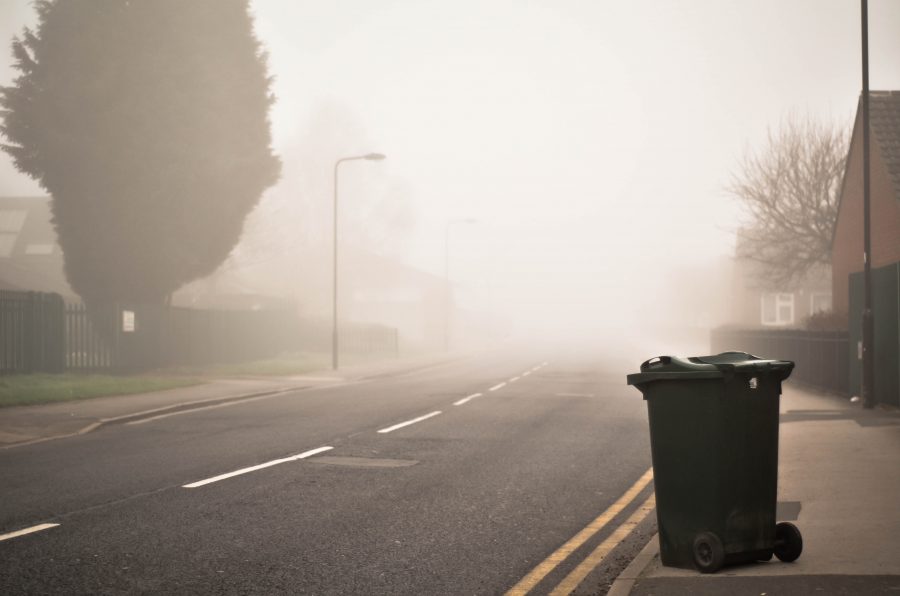For the month of October, CCSJ is accepting donations of reusable bags to be used in food access programs, such as the Wilson Park and Woodbourne-McCabe Farmer’s Market for York Road residents. Such donations can offer a eco-friendly way for residents to gain access to healthy foods that they may otherwise struggle to find at an affordable price in their area.
Loyola this year has truly committed to sustainability, from similar drives to the CCSJ’s bag drive, to investing in solar-powered trash-compacting cans. However, there is still many ways that Loyola has to grow in its efforts to be a more environmentally-friendly campus.
The Environmental Action Club (EAC) was advertising the Baltimore Toxic Tour, a look into local pollution including the dirty water in the Inner Harbor, the incinerator downtown, and Loyola’s own method of disposing of waste through recycling centers and landfills.
In the last few years, a waste-free lifestyle has become increasingly popular, with social media personalities such as Lauren Singer giving a Ted Talk about fitting an entire year’s worth of trash into a mason jar and sharing blogs that espouse zero-waste tips and practices.
Loyola is a green campus in some aspects, but continues to offer plastic, which fills our oceans, and animal products, the production of which has been proven to harm the environment.
Although it’s futile to hope that Loyola could completely dump plastic or animal products for good, change is coming, though, as different organizations like EAC are searching for systematic change with the leadership at our university.
Real change, though, can only come from the student body. It’s up to us to actively choose to reduce our waste, and these actions will not only increase the university’s level of sustainability but also signal to the administration that going green is something we care about.
First, students can say no to plastic. Simple practices like bringing a reusable bag to Iggy’s when you shop and bringing your own cup to Starbucks can cut down significantly on the waste that we create as a campus.
Plastic is a made from natural gas, a nonrenewable resource which pollutes bodies of water and our air. It is also not biodegradable, meaning when it does not reach the recycling plant it will never be broken down completely, and many times end up harming wildlife who accientally consume these products such as plastic water bottle caps.
So, by investing in eco-friendly products like reusable water bottles and bringing along a fork when you get food at Boulder, you can take some steps to reduce our plastic use at Loyola.
Another easy step to achieving a more environmentally-friendly campus is to participate in “Meatless Mondays” or simply cut down on meat. Although the two are seemingly unlinked to leading a less wasteful lifestyle, they are actually deeply interconnected.
According the United Nations, animal agriculture is the No. 1 producer of methane gases, a greenhouse gas deemed more harmful than carbon dioxide. Animal agriculture also extremely wasteful in its use of resources: a farm with 2,500 dairy cows produces the same amount of waste as a city of 411,000 people. Five percent of water consumed in the U.S. is by private homes but a whopping 55 percent of water consumed in the US is for animal agriculture. Additionally, raising animals for food is the leading cause of ocean dead zones due to runoff waste.
Alternatively, plant-based foods use about 10 times less water on average than animal products, and obviously don’t excrete waste that leads to methane emissions and water pollution. So it’s clear that by reducing your intake of animal products and participating in “Meatless Mondays,” you can stop contributing to these extremely environmentally harmful practices within the industry. So, students hold the power to make choices like boycotting single-use plastic items like water bottles and reducing meat consumption, in favor of sustainable practices like utilizing reusable mugs and practicing meatless Mondays. The leadership at Loyola is already on the path to a greener campus, but student support can truly be a catalyst for positive change.








































































































Taylor Elton • Oct 24, 2017 at 12:16 pm
5